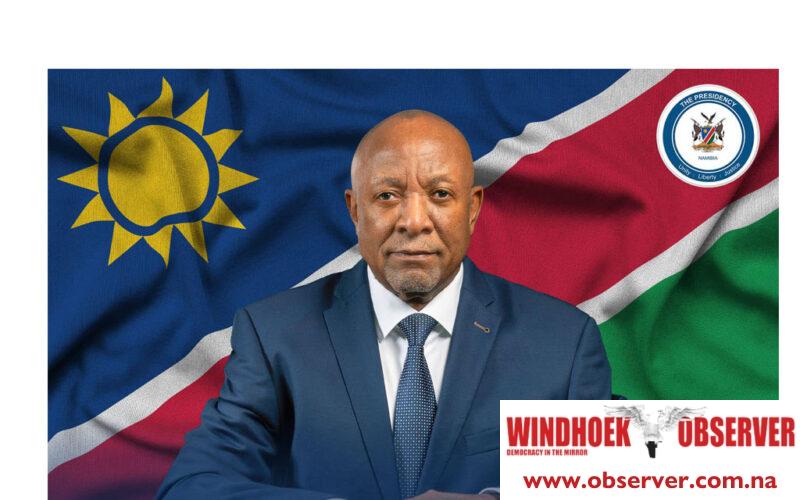Hertta-Maria Amutenja
President Nangolo Mbumba assumed office on 4 February 2024, following the passing of President Hage Geingob.
At the time, he was the vice president of the country.
On the same day that Geingob died, he was sworn in as Namibia’s fourth President.
Mbumba reflected on that day during a remembrance service for Geingob at the statehouse on Tuesday.
“Exactly 365 days ago, with tears in my eyes, I had to take the oath of office as the president of Namibia. After that, I told security and protocol the office of the president should remain closed and his cars parked and I am going home with the car that brought me here,” he said.
Mbumba said his instructions were overruled by the State House procedures.
In his inaugural address to the 9th session of the 7th Parliament, delivered two days after assuming office, President Mbumba urged the nation to continue the work initiated by his predecessor, emphasising unity and inclusivity within the Namibian House.
Throughout his tenure, President Mbumba represented Namibia on the international stage, visiting over 14 countries, including Angola, Botswana, South Africa, the United States, China, Germany, the Netherlands, Ghana, Tanzania, and Cuba.
Mbumba will leave office on 21 March, having served just over a year.
Political analyst Marius Kudumo observed that Mbumba’s leadership was characterised by humility and a focus on maintaining government stability.
“What President Mbumba has brought to the office of president is humility. He was not overemphasising the tease of a head of state, although he’s a head of state. So he’s an ordinary person. If you knew him, if you have interacted with him, the presidency has not gone to his head. He is the Mbumba that you knew when he was the Minister of Education,” said Kudumo.
He described Mbumba’s tenure as one focused on maintaining government stability without introducing major new policies.
“After the late president, President Geingob, passed on, he was only president for one year. Therefore, we have not seen a lot of new policies that he has introduced,” said Kudumo.
According to him, Mbumba concentrated on completing the plans initiated by his predecessor.
“It was clear when he assumed office, according to him, that he was just finishing the time of the late president. In other words, continuing with governmental development plans. So he was continuing with plans that were already in place. There were not a lot of new programs that he had introduced,” he said.
Kudumo described Mbumba’s leadership as “servant leadership” and “ethical and moral.”
“If there is a legacy, then that is the legacy of public service as well as ethical, moral and servant leadership. That’s basically what he wanted, he said.
Political analyst Ndumba Kamwanyah echoed these sentiments, saying Mbumba’s short tenure made it challenging to judge his presidency fully.
“It is important to note that his reign as the president is very short, so it can be a little bit difficult to judge him accurately,” Kamwanyah said.
However, Kamwanyah praised Mbumba’s efforts to ensure a smooth transition following Geingob’s death.
“He made sure that there was stability in the government and the state to make sure that there were no unintended disruptions. So from that perspective, I think we can give him kudos that he has done well to make sure that the country, despite the disruption caused by the death of Dr Hage Geingob. He made sure that our political institutions remained intact, that the transition happened very smoothly and peacefully and that nothing was disrupted,” Kamwanyah said.
Despite this achievement, Kamwanyah criticised Mbumba’s focus on international travel during his short presidency.
“On the negative side for me, he travelled too much. It’s okay because he was new, he wanted to introduce himself to the international world. But if you know that your period in office is very short, just focus on domestic affairs and let the new president introduce himself or herself to the world,” Kamwanyah said.




